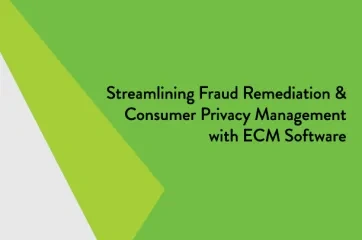In general, credit documents are those documents that pertain specifically to the borrower (not the loan).
Financial institutions rely on credit documents to provide information about the customer or member and establish their creditworthiness. In other words, banks and credit unions look to credit documents as an indication of a customer or member’s financial track record and capacity to repay borrowed money.
Examples of Credit Documents
Most consumer loans in the United States depend on the borrower’s credit score. Even so, consumer loans still require confirmation of identification for the account holder, such as a driver’s license. Furthermore, the bank or credit union may need a W2, tax return, and CIP document.
Required credit documents may vary depending on the type of commercial account and its formation. However, banks and credit unions will likely ask for the following information for new commercial accounts:
- Articles of incorporation / organization
- Operating agreements
- Bylaws
- Corporate financials
- Accounts receivable statements
- Inventory statements
Banks and credit unions often ask business owners to provide personal documentation, too. Such requests may include tax returns and credit reports.
Furthermore, throughout the life of the loan, banks and credit unions may need to collect updated credit documentation to ensure ongoing creditworthiness of the commercial account holder. Additional financial statements and tax return documents are common examples.
Managing Credit Documentation
Historically, banks and credit unions relied on paper folders and shared network drives to manage credit documentation. Leveraging a core-integrated document management system, such as AccuAccount, provides an opportunity to increase credit document management efficiency. Automated exception reports keep lenders informed about missing credit documentation with minimal effort.
Browse Additional Resources
Continue reading additional banking definitions from Alogent. You can also download a free eBook or spreadsheet on our resources page.














